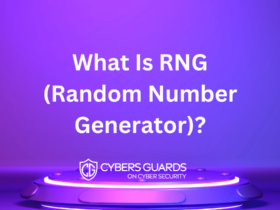In 2021, the US online gambling sector had an estimated worth of approximately $61.5 billion, with projections indicating a growth to $114.4 billion by 2028. This remarkable expansion of the market has attracted the attention of cybercriminals, who recognize its lucrative prospects and vulnerabilities in the digital realm.
Present-day hackers focus on online gaming platforms, employing tactics like Dedicated Denial of Service (DDoS) attacks and fraudulent activities related to user accounts rather than resorting to traditional methods such as counterfeit money, fake chips, or manipulation of slot machines.

Cybercrime poses an existential threat to Pennsylvania online casinos as well, so it’s no surprise that they deploy the most advanced solutions to protect player data and ensure a secure wagering environment.
The Battle Against Cybercrime Presents New Hurdles and Innovative Resources
Intelligent bots driven by artificial intelligence are improving their ability to mimic human behavior and are now three times more challenging to detect. There has been an increase in state-sponsored actors launching DDoS attacks on critical infrastructure, particularly following Russia’s invasion of Ukraine. Moreover, businesses are grappling with a fresh wave of fraudulent activities and cybercriminals stemming from the escalating issue of citizen scammers.
To maintain resilience against modern cyber threats, online casinos can employ several strategies to safeguard their online presence and financial stability. Here are a few tactics that may prove effective:
1. Make sure your cybersecurity is multi-layered to protect against bot and DDoS assaults.
DDoS attacks might cost organizations up to $40,000 per hour and may prevent a site from being accessible for hours or days. DDoS assaults may occur on a variety of tiers, making it challenging to identify and stop them. Service providers or databases are overwhelmed with a large number of application calls during an application layer attack. Attacks against protocols at the network or transport layers overwhelm the intended targets.
To enhance their resilience against such threats, online casinos can utilize payment monitoring tools equipped with real-time behavioral analytics. These analytics leverage not only network and application data but also data extracted from the application payload, allowing for a comprehensive approach to threat detection and prevention.

2. Focus on obstructing cybercriminals rather than targeting profits.
Conventional cybersecurity measures often lag behind in identifying novel and evolving cyber threats, and they face a significant obstacle in preventing malicious activities. Traditional firewalls can only regulate network traffic based on IP addresses and ports. Consequently, during a DDoS attack or similar rapid onslaught, legitimate customers sharing the same IP address or port may also be blocked by the firewall. This results in numerous false alarms, dissatisfied customers, and financial losses.
Modern cybersecurity solutions employ a combination of unattended and attended machine learning to identify evolving risks and create dynamic client profiles in real time. Through self-learning capabilities, machine learning models are regularly updated, enabling them to swiftly assign risk scores to transactions within milliseconds. These solutions effectively distinguish criminal activities, allowing legitimate transactions to proceed uninterrupted.
3. Ensure the security of gamers’ accounts.
The consequences of a cyberattack extend beyond financial losses for gambling and betting companies. These companies also hold sensitive personal and financial data of their players, which can be exploited by criminals. Malicious actors have the potential to hijack user accounts or carry out identity-related attacks. It is the responsibility of businesses to prioritize the security of their players’ accounts, as any mishap can result in severe damage to their reputation.
To safeguard their brand, online casinos can employ comprehensive real-time monitoring and tracking of transactions supported by automated risk-scoring mechanisms. This approach enables the identification of suspicious behavioral patterns and anomalies, allowing prompt action to block any potential threats before they harm the brand.
4. Keep an eye on your system’s weak connections.
While it is crucial to invest in cybersecurity technologies and establish a competent team, regularly assessing potential vulnerabilities and weak points within the system is equally vital. An online gambling company might have robust player authentication solutions, but there could be other significant aspects of security that are overlooked.
Are all the necessary data readily available for your business when required? Is it accessible instantly? Have you implemented multiple layers of security, including the network infrastructure and applications? Are you actively monitoring for emerging threats? By addressing these concerns through periodic checks and discussions with your team, you can maintain a vigilant stance against new risks.

5. Ensure the security of cryptocurrency and digital payment transactions.
With the increasing acceptance of cryptocurrency in sports betting and online gambling, it is crucial to incorporate measures to protect digital funds within the cybersecurity strategy. By employing tools that encompass fraud detection and real-time monitoring of digital transactions on a unified platform, businesses can proactively stay ahead of malicious actors and safeguard their company’s wallets.
To Conclude
The rise of online casinos has opened up new avenues for cybercriminals to exploit vulnerabilities and target valuable assets. The consequences of cybercrime in the online casino industry can be severe, ranging from financial losses to reputational damage.
However, by adopting robust cybersecurity measures, staying updated with the latest tools and techniques, and complying with legal and regulatory frameworks, online casinos can effectively combat cyber threats and ensure a safe gambling environment for their users.
The battle against cyber card sharks requires constant vigilance, innovation, and collaboration to stay one step ahead of the ever-evolving cybercrime landscape.










FIND US ON SOCIALS